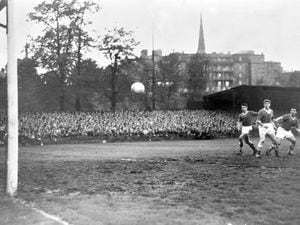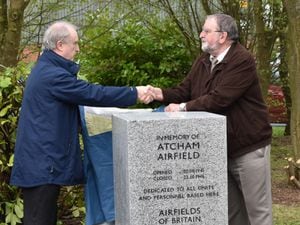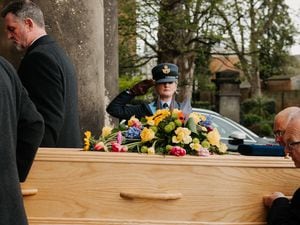Tough times: Cost of living goes through the roof in 1970s Shropshire
Inflation? Take a trip back in time to the 1970s, when the cost of living in Britain had, in the words of the Shropshire Star headline, "gone through the roof".
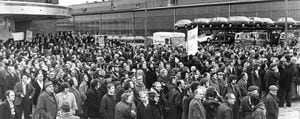
Figures released on February 18, 1977, showed that the inflation rate climbed to 16.6 per cent, which was the highest since 1975, when it had been running at an incredible 24.2 per cent.
As a modern comparison, the inflation rate in December was 2.1 per cent, mainly due to falling petrol prices and cheaper air fares.
And to get a measure of how inflation has had an impact in the years since, the £1 in your pocket 42 years ago would be the equivalent of £7 today.
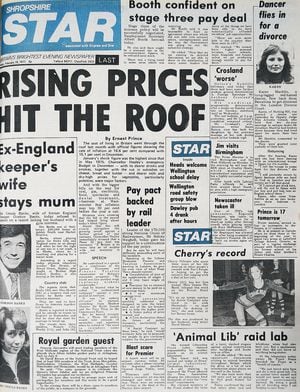
The 1977 inflation rise had come on the back of an emergency Budget by the Chancellor, Denis Healey, which had put up the price of drink and cigarettes, and cut subsidies on cheese, bread and butter.
Milk was dearer, and there were sky-high prices for vegetables, particularly potatoes.
All this was a ticking timebomb under James Callaghan's minority Labour administration which, as a way of holding down inflation, was seeking to control pay rises through a "Social Contract" with the unions. It was a pay restraint agreement which was to come under increasing strain until finally the dam burst leading to the infamous "winter of discontent" in 1979.
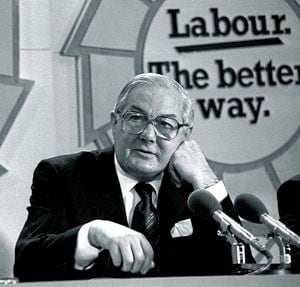
On the very day the new inflation figures came out, car giant Leyland (some will remember it better as British Leyland, or as BL, which rolled off the tongue like a fitting epithet) faced a total shutdown as thousands of toolroom workers began an indefinite strike. Eleven factories of the British car maker were hit by the walkout, which plunged the firm into its biggest production crisis yet.
The company was already crippled, with 10 assembly lines idle because of other disputes, and the latest strike was forecast to cause losses of about £12 million a day.
Misery
It was not all bad news on the strikes front. Official figures from the Department of Employment showed that the number of strikes in Britain had fallen.
In 1976 lost working days were reduced by nearly half, and 98 per cent of firms had been free from stoppages over the previous three years.
And the number of people out of work in Britain had fallen for the first time in four months. In Shropshire, however, the dole queues had lengthened marginally, with 34 more people registered as unemployed. The total out of work in the county was 8,229, which was 6.4 per cent of the working population.
More misery was predicted in the form of a bread famine resulting from plans by workers in Britain's biggest bakeries to strike over equal pay. The Bakers' Union wanted to see an upgrade in the pay for women under equal pay legislation.

Meanwhile the National Housewives' Association, representing 25,000 price-conscious housewives, was seeking a strong voice in the Common Market, as it was called then.
New chairman Mrs Betty Stevens said: "I make no secret of the fact that I am an anti-Marketeer. Now that we are in, I think we must safeguard our interests against some of the ridiculous laws which are not applicable to us in Britain, but which we are still forced to observe."
Away from all this economic and political stuff, there was an unusual court case in which the jury heard that two Telford men planned to take over Beacon Radio in Wolverhampton as a last resort to publicly declare the need for a general hospital in Telford.
They said they planned to go to a disc jockey and order him to broadcast a prepared speech, which was typed on lavatory paper.
In the event they did not go ahead with it, and one of the men said he chewed up the message and swallowed it.
The message would have begun: "Good evening. Tonight we shall have a special live broadcast. The subject is Telford's lack of a general hospital. The purpose of this broadcast is to bring home the truths, corruptions and the reasons why Telford has no hospital and has no chance in the next decade..."


